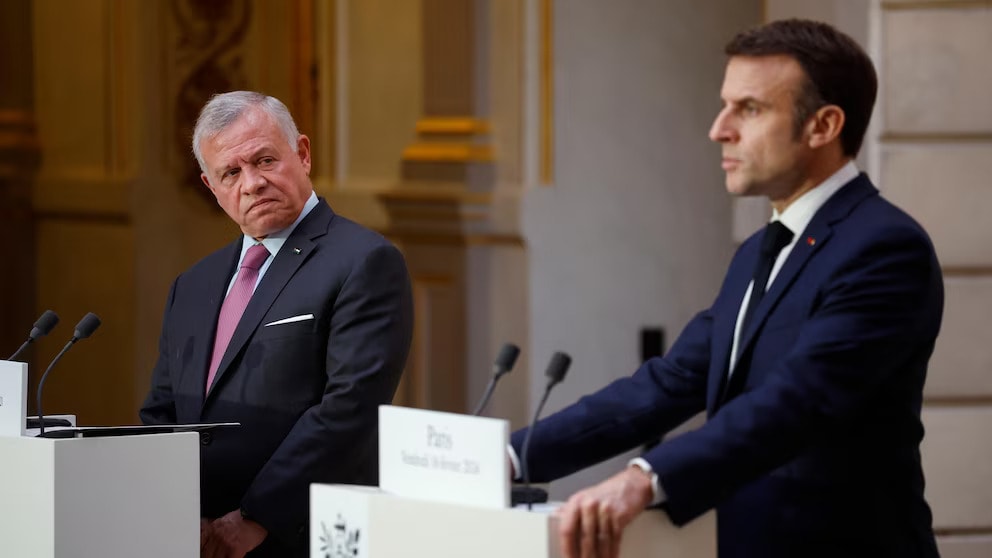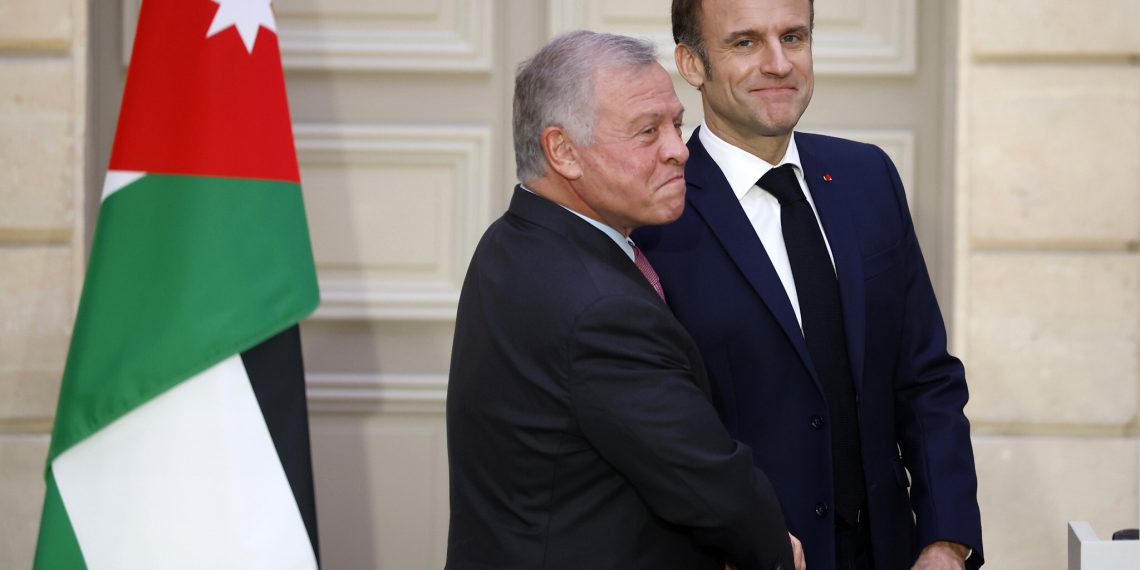French President Emmanuel Macron indicated on Friday that France might consider recognizing Palestine as a state if efforts towards a two-state solution faltered due to Israeli opposition.
While such unilateral recognition would hold symbolic and diplomatic significance, it would not inherently alter the situation on the ground without substantive negotiations.
Previously, Israeli Prime Minister Benjamin Netanyahu has staunchly opposed Palestinian sovereignty, citing non-negotiable Israeli security control over the region. Despite a 2014 symbolic vote by French lawmakers urging recognition of Palestine, France’s official diplomatic stance remained unchanged.
Macron’s remarks, made alongside Jordan’s King Abdullah II in Paris, marked the first time a French leader openly hinted at unilateral recognition. He emphasized the need to honor Palestinian aspirations and address the region’s longing for stability, acknowledging the historical injustices faced by both Palestinians and Israelis.
The comments are seen as a diplomatic move to increase pressure on Israel amidst escalating tensions in Gaza. Israel’s recent military offensive has resulted in significant Palestinian casualties and widespread destruction, prompting international concern.

While many developing nations recognize Palestine, most Western European countries, including France, have refrained from doing so, advocating for a negotiated settlement with Israel. However, British Foreign Secretary David Cameron hinted at a potential shift in British policy towards recognition.
Macron warned against further Israeli aggression in Rafah, stressing the potential humanitarian catastrophe it could trigger and its potential to exacerbate the conflict.
Overall, Macron’s statements signal France’s willingness to explore alternative paths toward a resolution, acknowledging the urgency of addressing the Palestinian-Israeli conflict amid escalating tensions and human suffering.




